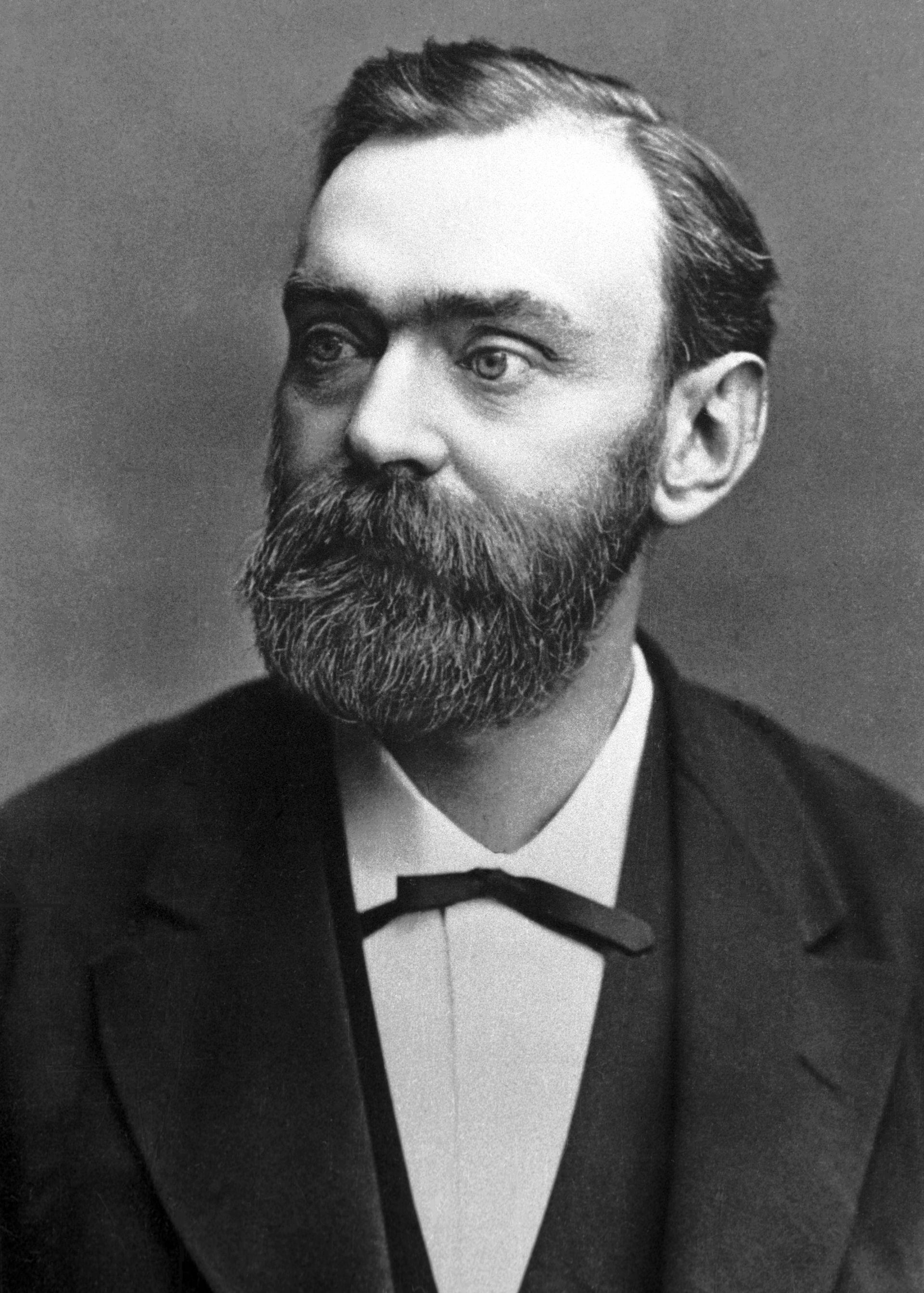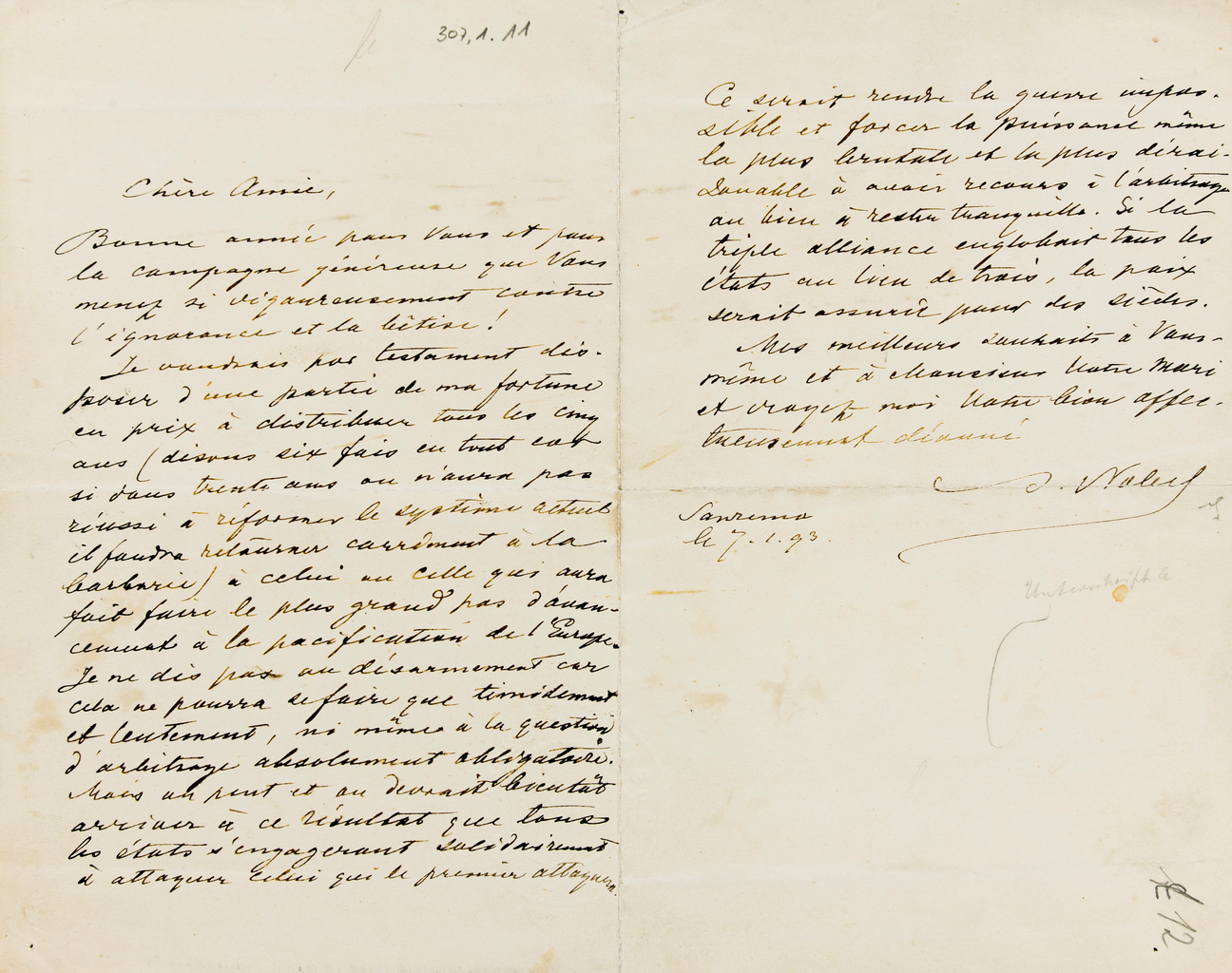The Woman Behind the Nobel Peace Prize
Bertha von Suttner was born in Prague in 1843, with the title Countess Kinsky. Although she belonged to the Austrian-Bohemian nobility, her family was far from being wealthy. At the age of thirty, Bertha took a position as tutor for the Suttner family in Vienna. When she and the youngest son of the family, Arthur, fell in love, the Suttner family urged her to find another position. She responded to a newspaper advertisement from “a very wealthy, cultured, elderly gentleman, living in Paris, who desires to find a lady also of mature years, familiar with languages, as secretary and manger of his household.” This “elderly gentleman” was Alfred Nobel. He was 42 at the time.
Pen Pals
Bertha met all the qualifications and got the position. But Bertha von Suttner and Alfred Nobel worked together for only eight days. After receiving a letter from her beloved Arthur, where he wrote that he could not live without her, Bertha decided to follow her heart and run away with him, despite the opposition from the Suttner family. They married in secret and moved to Georgia.
Even though Bertha von Suttner and Alfred Nobel only worked together for a short period of time, a strong friendship developed and lasted for the rest of their lives. The abundant correspondence that took place between the two of them in the following years laid the groundwork for Alfred Nobel’s introduction to the growing peace movement in Europe. Initially sceptical about peace societies, Alfred Nobel wrote:
"Inform me, convince me, and then I shall do something great for the movement."
It was all Bertha needed to hear to start sending him a steam of material about the peace movement. Something she wrote in one her letters may reveal not only a wish to inspire Nobel, but also to have an impact on history:
"Whether I am around then or not does not matter; what we have given, you and I, is going to live on."
The Peace Movement
Alfred Nobel stood by, as a friend and a supporter, as Bertha von Suttner became one of the leading peace activists in Europe. Her book Lay Down Your Arms was one of the most influential books of the 19th century, and she earned the nickname “Generalissimo” of the peace movement. She was ahead of her time, repeating again and again that “Europe is one” and that uniting Europe was the only way to prevent a new war. Bertha’s writing and peace work was very inspiring to Alfred Nobel, but the inventor of dynamite and the “Angel of Peace” did not always agree. In one of his letters to Bertha von Suttner, Alfred Nobel wrote:
"Perhaps my factories will put an end to war even sooner than your peace congresses. On the day when two armies will be able to annihilate each other in a second, all civilized nations will recoil with horror and disband their troops on knowing that total devastation will be in store for them if they engage themselves in war."
First woman
In 1905, Bertha von Suttner became the first woman to be awarded the Nobel Peace Prize. She had been nominated every year since the inception of the Nobel Prizes in 1901. Up until 1975, only three women were awarded the Nobel Peace Prize, and Bertha was the only one to receive it on her own. The other two, Jane Addams and Emily Greene Balch, had to share the prize with a man.
Bertha von Suttner passed away in June 1914, only days before the outbreak of World War I — the war she had spent much of her life trying to prevent. She is remembered as the inspiration behind the Nobel Peace Prize, a leading peace activist and the first female Nobel Peace Prize laureate. But on International Women’s Day, she should also be remembered as a feminist, a pioneer well ahead of her time, and an advocate for women’s participation in politics and peace building. In a speech in San Francisco in 1912, right after women were granted the right to vote in California, Bertha von Suttner said:
"The one half of humanity that has never borne arms is today ready to blaze into this living palpable force — the principle of the brotherhood of man. Perhaps, the universal sisterhood is necessary before the universal brotherhood is possible. "
Share:

